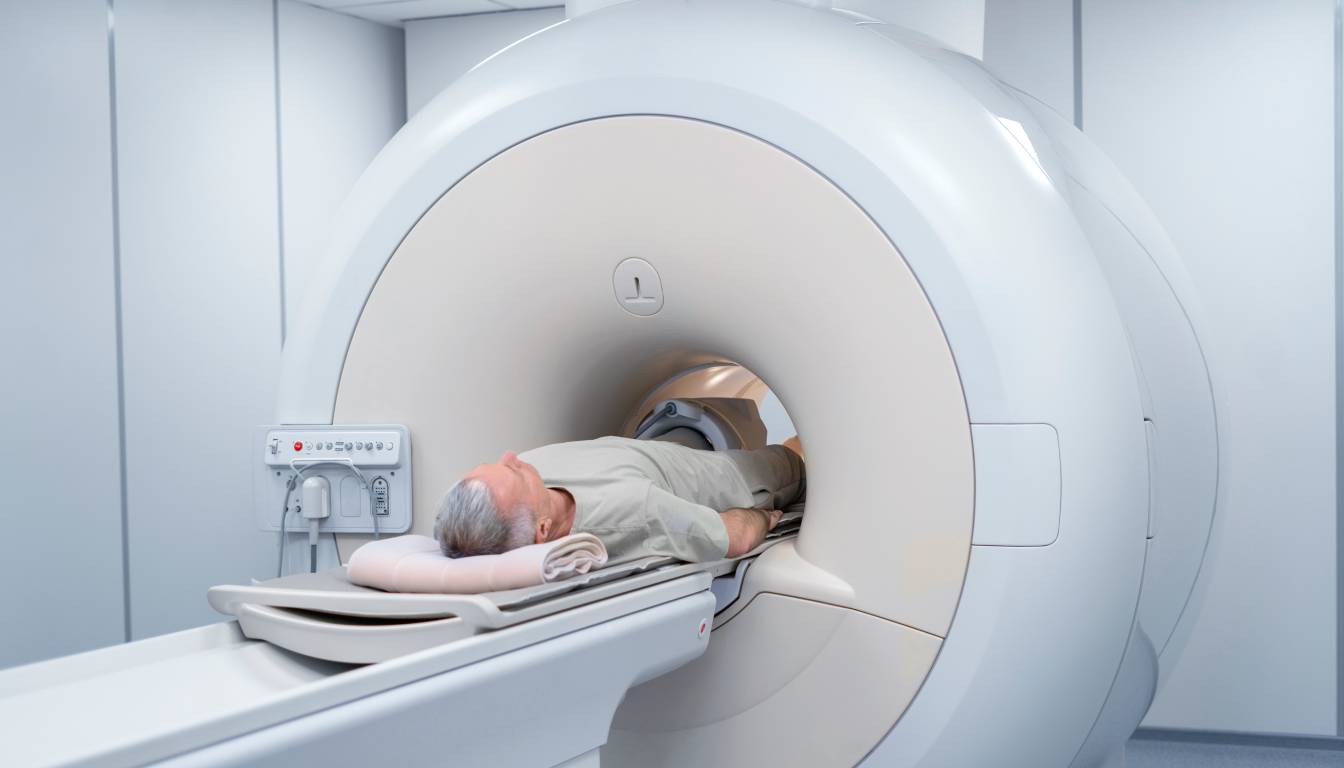Paul Johnston is the founder and master herbalist of The Herb Prof, with decades of clinical experience in naturopathic medicine, herbal remedies, detoxification and holistic wellness. After overcoming his own serious health challenges, he now dedicates himself to helping others reclaim their health naturally.
Colorectal cancer is among the most prevalent cancers in the United States, yet it often goes unnoticed. Although it might be a difficult subject to talk about, raising awareness of this disease can save lives. Early detection is crucial, and being aware of the risk factors and symptoms can have a significant impact.
Now imagine having the power to take control of your health. By staying educated and proactive, you can protect yourself and your loved ones. In this text, I’ll dive into the essential facts about colorectal cancer, shedding light on prevention, screening, and treatment options. Together, let’s empower ourselves with knowledge and take a stand against this silent threat.
Overview of Colorectal Cancer
Colorectal cancer affects the colon or rectum, and it’s one of the most commonly diagnosed cancers in the United States. Every year, thousands of people receive this diagnosis, which is why raising awareness is so important. Fortunately, early detection significantly improves survival rates, so knowing the signs is vital.
When it comes to risk factors, age, family history, and lifestyle choices all play a role. In particular, men and women over 50 face higher chances of developing this type of cancer. Moreover, a sedentary lifestyle, obesity, and a diet heavy in processed foods can increase risk. That’s why I often remind my friends to incorporate plenty of fruits and vegetables into their diets.
As for symptoms, they can vary widely. For example, common signs include changes in bowel habits, such as diarrhea or constipation. Additionally, blood in the stool can raise red flags. Other symptoms, like unexplained weight loss, fatigue, or persistent abdominal discomfort, may also indicate the need for medical attention. Ultimately, it’s best to check your health regularly to catch potential issues early.
Prevention, Screening, and Treatment Options – Colorectal Cancer: How to Prevent It
Screening plays an essential role in prevention. Different screening tests, like colonoscopies and stool tests, can detect colorectal cancer early. Typically, people start screening around age 45, although those with a family history may need to begin earlier. Importantly, the conversation about screening shouldn’t be awkward; after all, it’s just about keeping your gut happy.
When it comes to treatment, options vary based on the cancer stage. Often, surgery removes tumors from the colon or rectum. In some cases, doctors might use chemotherapy or radiation to target remaining cancer cells. Therefore, discussing all available options with healthcare professionals helps ensure the best path forward.
In essence, colorectal cancer is serious, but understanding it makes a difference. By prioritizing awareness, screening, and early detection, we can improve outcomes. Personally, taking control of my health through knowledge and regular check-ups feels empowering, and it’s a message worth sharing.
Risk Factors – Colorectal Cancer: How to Prevent It
Colorectal cancer has various risk factors. Understanding these factors can aid in prevention and detection.
Genetic Factors
Genetic factors play a significant role in colorectal cancer risk. Individuals with a family history of colorectal cancer face higher odds of developing the disease. Inherited syndromes like Lynch syndrome or familial adenomatous polyposis also increase risk. A mutation passed down can raise the chance of this cancer occurring at a younger age. If you have a close relative diagnosed with colorectal cancer, it’s wise to discuss your risk with a healthcare provider.
Lifestyle Factors
Lifestyle factors significantly influence colorectal cancer risk. A sedentary lifestyle raises the chance of developing the disease. Regular physical activity helps reduce this risk efficiently. Poor diet choices also contribute. Consuming a diet high in red and processed meats while low in fruits and vegetables can be harmful. Alcohol consumption adds another layer of risk, especially in heavy drinkers. Smoking is a third lifestyle factor, as it has well-documented links to various cancers, including colorectal cancer. Making healthier choices can significantly lower your risk.
Symptoms and Diagnosis

Recognizing the symptoms helps with early detection. Being informed makes a significant difference in outcomes.
Common Symptoms
I notice changes in my body when something’s not right. Common symptoms of colorectal cancer often include:
- Changes in Bowel Habits: I experience frequent diarrhea or constipation. These changes may seem normal, but can signal potential issues.
- Blood in Stool: Red or dark blood in my stool grabs my attention. It’s often a red flag that prompts me to seek medical advice immediately.
- Unexplained Weight Loss: Losing weight without trying is alarming. It’s crucial to investigate such changes promptly.
- Persistent Abdominal Discomfort: I might feel constant cramps or pain. Any ongoing discomfort merits a conversation with my healthcare provider.
- Fatigue: Feeling unusually tired can stem from various causes. If this fatigue lingers, I recognize the need for a check-up.
Diagnostic Methods – Colorectal Cancer: How to Prevent It
Doctors use several methods to diagnose colorectal cancer. I appreciate knowing these processes so I can be prepared. I stay proactive and vigilant about any symptoms. These quick responses can lead to timely diagnosis and treatment, making a world of difference in my health journey.
- Colonoscopy: This procedure allows doctors to examine my colon closely. They can remove polyps during the exam, which may become cancerous.
- CT Colonography: Sometimes called a virtual colonoscopy, this imaging test creates detailed pictures of my colon, helping doctors catch any abnormalities.
- Biopsy: If tests indicate potential cancer, doctors perform biopsies. This involves removing tissue samples for examination under a microscope.
- Fecal Tests: These tests analyze stool samples for hidden blood or abnormal genetic material. They serve as a preliminary screening step to determine if further investigation is necessary.
Treatment Options – Colorectal Cancer: How to Prevent It
Colorectal cancer treatment options vary based on the cancer’s stage and characteristics. It’s essential to discuss choices with a healthcare provider to find the best fit.
Surgical Treatments
Surgery often plays a primary role in treating colorectal cancer. I find it fascinating that the type of surgery depends on the tumor’s location and size. Some patients may undergo a polypectomy, where surgeons remove polyps during a colonoscopy. Others might need a partial colectomy, where a section of the colon gets removed. If the cancer has spread, a more extensive procedure called a total colectomy might be necessary. Recovery varies. Most people can resume normal activities within a few weeks, although patience is key.
Chemotherapy and Radiation
Chemotherapy and radiation therapy serve as vital components in treating colorectal cancer. I often hear about chemotherapy after surgery to eliminate any remaining cancer cells. Doctors may prescribe a combination of drugs, enhancing effectiveness. Side effects can occur, like nausea or fatigue, but many find manageable solutions.
Radiation therapy is another option, especially for rectal cancer. It can shrink tumours before surgery or ensure they don’t return. Sessions typically last a few weeks, and most people can carry on with their daily routines during treatment.
Finding the right treatment can feel overwhelming. It’s important to gather information, ask questions, and consider personal circumstances. Each journey is unique, but collaboration with a healthcare team makes navigating this process easier.
Prevention Strategies – Colorectal Cancer: How to Prevent It

Staying proactive can make a big difference. Regular screenings catch problems early. I recommend starting screenings around age 45. Those with family histories might need to start even earlier, so checking with a healthcare provider is wise.
Eating a balanced diet is crucial. Plenty of fruits, vegetables, and whole grains fuel the body. Avoiding processed foods and red meats helps reduce risk. Drinking water keeps the system running smoothly and aids digestion, making fibre-rich foods easier to process.
Staying active plays a vital role, too. Engaging in moderate exercise, like brisk walking or swimming, strengthens the body and improves overall health. I find that even small daily activities, such as taking the stairs instead of the elevator, add up over time.
Limiting alcohol and quitting smoking significantly decreases cancer risk. Opt for healthier options at social gatherings. Choosing non-alcoholic beverages or mocktails keeps the fun alive while supporting health.
Maintaining a healthy weight is important as well. Excess weight can lead to various health issues, including colorectal cancer. Simple changes like portion control or swapping snacks can make a huge impact on weight management.
Staying informed about family history also matters. Genetics can increase risk, making it essential to discuss any relevant family diagnoses with a healthcare professional. Talking openly about health in my family has led to more awareness among my relatives.
Regular check-ups enhance prevention strategies. Healthcare providers can recommend personalized plans based on individual risk factors. Making appointments for routine checks can be a lifesaver.
With these steps, I feel empowered to take my health seriously. Every positive choice counts in the fight against colorectal cancer, keeping both my mind and body in shape.
Before You Go – Colorectal Cancer: How to Prevent It
Colorectal cancer is a serious health challenge that can often be prevented through awareness and proactive measures. By understanding the risk factors and recognizing the symptoms early on, I can take significant steps toward protecting my health. Regular screenings and a healthy lifestyle are essential in reducing my risk.
Staying informed about family history and maintaining open communication with healthcare providers can empower me to make informed decisions. The journey toward prevention starts with education and taking action. By prioritizing my health, I can contribute to better outcomes not just for myself but for those around me. Don’t forget to add theherbprof.com to your favorites, so you don’t miss out on future articles.
References – Colorectal Cancer: How to Prevent It
Little Herb Encyclopedia, by Jack Ritchason; N.D., Woodland Publishing Incorporated, 1995
The Ultimate Healing System, Course Manual, Copyright 1985, Don Lepore
Planetary Herbology, Michael Tierra, C.A., N.D., Lotus Press, 1988
Handbook of Medicinal Herbs, by James A. Duke, Pub. CRP Second Edition 2007
The Complete Medicinal Herbal, by Penelope Ody, Published by Dorling Kindersley
Check the Following Articles
Bursitis Hip: Free Healing Herbal Remedy
Autoimmune Diseases: The Role of Diet and Nutrition
Check these Categories
Frequently Asked Questions – Colorectal Cancer: How to Prevent It
What is colorectal cancer?
Colorectal cancer is a type of cancer that affects the colon or rectum. It’s one of the most common cancers in the U.S. Early detection of this disease is crucial for improving survival rates, which can be significantly increased through awareness of symptoms and regular screenings.
What are the risk factors for colorectal cancer?
Key risk factors for colorectal cancer include age (especially those over 50), family history, lifestyle choices (such as a sedentary lifestyle and poor diet), smoking, and excessive alcohol consumption. Individuals with a close relative diagnosed with colorectal cancer should particularly consult a healthcare provider about their risk.
What are the symptoms of colorectal cancer?
Common symptoms of colorectal cancer include changes in bowel habits, blood in the stool, unexplained weight loss, fatigue, and persistent abdominal discomfort. Recognizing these signs early can lead to timely diagnosis and treatment.
When should I start screening for colorectal cancer?
Screening for colorectal cancer is typically recommended to begin around age 45. Those with a family history of the disease or other risk factors might need to start screenings earlier. Regular check-ups are essential for timely detection.
What are the treatment options for colorectal cancer?
Treatment options for colorectal cancer vary based on the cancer stage and may include surgery, chemotherapy, or radiation therapy. Your healthcare provider will recommend the best plan based on individual circumstances and cancer severity.
How can I prevent colorectal cancer?
Preventive measures include regular screenings, maintaining a balanced diet rich in fruits and vegetables, exercising regularly, limiting alcohol intake, quitting smoking, and maintaining a healthy weight. Staying informed about family health history is also vital for prevention.
How is colorectal cancer diagnosed?
Colorectal cancer diagnosis may involve several methods, including colonoscopy, CT colonography, biopsies, and fecal tests. These diagnostic tools help identify potential cancers and facilitate timely treatment, making awareness of symptoms crucial.
Why is early detection important for colorectal cancer?
Early detection of colorectal cancer can significantly improve survival rates. Recognizing symptoms and undergoing regular screenings allow for timely diagnosis and treatment, minimizing the impact of the disease on overall health.

